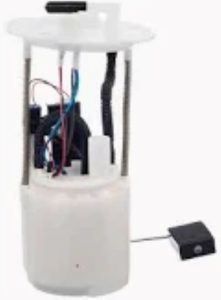A fuel pump relay can short out due to various factors; most are related to electrical issues and environmental exposure. The most common culprits of shorting are worn or damaged wiring, through which a path to ground creates excessive current flow. When the insulation on wires degrades—often because of excessive heat or age—it exposes the conductive core to cause shorts. Over time, particularly in higher-mileage vehicles, the wiring deteriorates, mainly around the engine compartment where temperatures easily reach over 200°F. Shorts in this area then force the relay to fail and prevent the fuel pump from operating as intended.
Other common causes of relay failure include moisture. If water or humidity enters the relay housing, it may provide a path that the electricity can follow when not intended, thus leading to the shorting of the relay. This is a common problem in those vehicles that have to drive through especially bad weather or even waterlogged roadways where moisture may build up inside the fuse box or compartment housing the relay. Most are sealed or have moisture-resistant relays to help ensure this is not an issue, especially in highly humid or rainy regions.

Demanding more current than what it is rated for can also short the relay. A typical fuel pump relay is normally designed to handle approximately 12 volts and an amp rating, maybe 15 to 20 amps. When high-performance fuel pumps that use more current are installed without upgrading the relay, the extra burden of a load could overpower its capacity, resulting in a short. For performance applications, a higher-rated current relay is required to prevent overloading and thereby failure.
Other causes of relay shorting include corrosion on the relay contacts, usually brought about by exposure to salt or other contaminants. Corrosion raises electrical resistance and eventually leads to overheating, which can cause failure in the relay. Usually, the inspection and cleaning of relay contacts are recommended by mechanics, specifically for those vehicles that have consistently been exposed to winter conditions where road salt abounds. This gives preventive maintenance of the relay and surrounding components the potential to minimize possibilities of shorting and prolong its life.
As Lee Iacocca, the former CEO of Chrysler, stated it so eloquently, "You can have brilliant ideas, but if you can't get them across, your ideas won't get you anywhere." A properly functioning Fuel Pump relay is crucial to a vehicle running reliably. If you need reliable replacement relays and would like to learn more about the topic, please see Fuel Pump.